
April 14
1868 Birth: Peter Behrens: German architect, head of the Department of Architecture at the Prussian Academy of Fine Arts in Berlin. Behrens was one of the leaders of architectural reform at the turn of the century and was a major designer of factories and office buildings in brick, steel and glass. Moreover, he was praised by Albert Speer and was internationally famous. In these circumstances, it was unwise for the Nazi government to restrict his activities, even if it so desired.
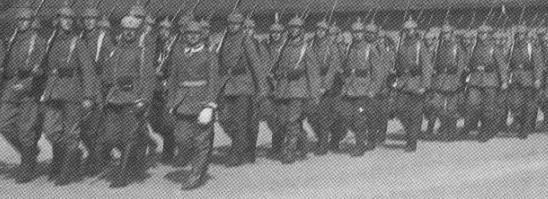
1916 World War I: List Regiment: Gefreiter Adolf Hitler endures trench warfare in Flanders (Artois) with 3 Company, 16 Reserve Infantry Regiment. [For further details, Click here.]
1916 World War I: Russian Front: Battle of Lake Naroch ends:
The Battle of Lake Naroch, an offensive on the Eastern Front by the Russian army during World War I, ends on this day in 1916 after achieving little success against German positions near Lake Naroch and the Russian town of Vilna (in modern-day Lithuania). [For further details, Click here.]
1917 World War I: List Regiment: Gefreiter Adolf Hitler's 16 Reserve Infantry Regiment, 3 Company, fortify trenches near Arras. [For further details, Click here.]
1918 World War I: Various:
: List Regiment: Gefreiter Adolf Hitler's 16th RIR constructs fortified works in difficult defensive positions on an active front with German assault regiments near Fountaine (Montdidier). [For further details, Click here.]
The Allied situation is desperate as General Foch and Pershing make a joint plea to President Wilson to get more US troops to Europe as soon as possible, even if untrained.
U.S. fliers in first dogfight over Western Front:
Six days after being assigned for the first time to the western front, two American pilots from the U.S. First Aero Squadron engage in America's first aerial dogfight with enemy aircraft. In a battle fought almost directly over the Allied Squadron Aerodome at Toul, France, U.S. fliers Douglas Campbell and Alan Winslow succeeded in shooting down two German two-seaters. By the end of May, Campbell had shot down five enemy aircraft, making him the first American to qualify as a "flying ace" in World War I. [For further details, Click here.]
1923 Nazi Party: Hitler first mentioned in a leading German newspaper, (the Frankfurter Zeitung):
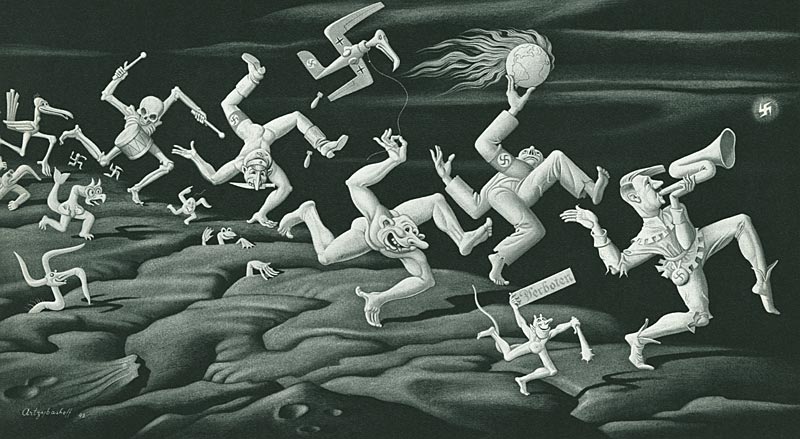
At a meeting yesterday, Hitler made it known that indictments were pending against Editor Eher of the Voelkischer Beobachter, against the president of the Oberland Bund, and against himself, and he added: "I ask you to be sticky as burrs and hard as steel in standing by our movement. We will not talk."
1931 Various:
Spain: Abdication: King Alfonso XIII flees the country as the 2nd Spanish Republic is proclaimed.
Volkishness: Johann Warthari Wolfl, Lanz von Liebenfels' longtime follower, begins publishing Ostara-Rundschau (Panarische Revue) based on the concept of "Pan-Aryan" cooperation between the right-wing radical groups of the world. It includes the addresses of the Voelkischer Beobachter in Munich, as well as racist and patriotic associations in Italy, France, Great Britain and the United States. (THP)
Countdown to Infamy: Baron Wakatsuki Reijirō becomes 28th Prime Minister of Japan. Opposition politicians of the time derogatorily label him Usotsuki Reijirō, or "Reijirō the Liar."
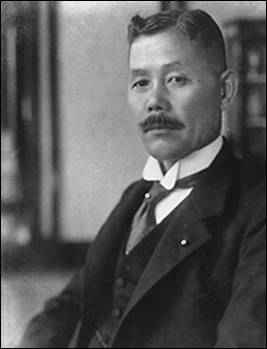
Note: Reijirō had earned the wrath of the various Japanese military and ultra-nationalist groups after serving as chief delegate plenipotentiary to the London Naval Conference (above, April 22, 1930). A weak leader, he will fail to control the Army, fail to prevent the Manchurian Incident from occurring, and fail to rein in the Army from further escalation of hostilities in China. After his retirement from the office of Prime Minister, he will strongly oppose the war against the United States and, after the declaration of hostilities, will publicly declare that the war should end as quickly as possible.
[See: Countdown to Infamy: Timeline to Pearl Harbor.]1933 Antisemitism: Japan: Anti-Jewish drive in Tokyo begins. (THP)
1934 Volkishness: Karl Maria Weisthor (Wiligut) is promoted to SS-Standartenfuehrer (Colonel).
1935 Death: Amalie Emmy Noether: German-born Jewish mathematician, said by Einstein in eulogy to be "the most significant creative mathematical genius thus far produced since the higher education of women began." Almost universally known as Emmy Noether, she had penetrating insights that she used to develop elegant abstractions. Emmy fled Germany in 1933; she had been forbidden from teaching undergraduate classes by the Nazi racial laws. She joined the faculty at Bryn Mawr College in the United States.

1936 Volkishness: Otto Rahn is promoted to SS-Unterscharfuehrer, a noncommissioned officer.
1937 Holocaust: Sterilization: Without even a Nazi law for the purpose, it is decided that all German children with a black parent are to be sterilized. After the prerequisite expert reports are provided by Dr. Abel, Dr. Schade, and Professor Fischer the sterilizations are carried out. (THP)
1940 World War II: Norway: Royal Marines land in Namsos, Norway, occupying key points, preparatory to a larger force arriving two days later.
1941 World War II: Various:
Croatia: The Ustashe, a Croatian far-right organization with Nazi and fascist policies, is put in charge of the Independent State of Croatia by the Axis Powers after the April 6 invasion of Yugoslavia during Operation Castigo.
Holocaust: Lodz: The German authorities order that any Jew leaving the ghetto is to be shot on sight. (THP)
Holocaust: Yugoslavia: Belgrade is occupied by the Germans. Within a few hours, Jewish shops are looted, and within a few weeks all Jewish communal activity is forbidden. (THP)
1943 Holocaust: Poland: The slave labor camp at Siedlce near Sobibor is "liquidated." (THP)
1944 India: Explosion on cargo ship rocks Bombay: The cargo ship Fort Stikine explodes in a berth in the docks of Bombay, India, killing 1,300 people and injuring another 3,000 on this day in 1944. As it occurred during World War II, some initially claimed that the massive explosion was caused by Japanese sabotage; in fact, it was a tragic accident. [For further details, Click here.]
1945 World War II: Various:
U.S. Fifth Army joins in Italian offensive:
On this day in 1945, the U.S. Fifth Army joins its British allies in the assault on the German occupiers of Italy.
The Fifth Army, now under Lucian K. Truscott (General Mark Clark, former commander of the Fifth, was made commander of the Allied armies in Italy), began pushing its way up the peninsula, capturing Massa and crossing the Frigido River. After meeting considerable German resistance in the mountains, the Fifth sent the Germans running once the battle took to open country. Bologna became the next target, falling to the Fifth one week after engaging the enemy in Italy. Ferrara, Bondeno, and Modena succumbed shortly thereafter, Genoa on the 27th, and Milan on the 29th—an agenda of assaults that mimicked Napoleon's Italian campaigns. Helping the U.S. effort was the work of Italian guerilla partisan groups, who had successfully taken control of the area west of the Como-Milan-Genoa line. By the time of the unconditional surrender of the Germans, signed at Caserta on April 29, almost 660,000 Axis troops lay dead—compared with 321,000 Allied dead. (History.com)
Japan: Incendiary raids on Tokyo, using B-29s. According to an eyewitness account:
They set to work at once sowing the sky with fire. Bursts of light flashed everywhere in the darkness like Christmas trees lifting their decorations of flame high into the night, then fell back to earth in whistling bouquets of jagged flame. Barely a quarter of an hour after the raid started, the fire, whipped by the wind, began to scythe its way through the density of that wooden city. This time again, luck - or rather, the American command's methodical planning - spared my district from direct attack. A huge borealis grew over the quarters closer to the center, which had obviously been reached by the gradual, raid-by-raid unrolling of the carpet-bombing. The bright light dispelled the night and B-29's were visible here and there in the sky. For the first time, they flew low or middling high in staggered levels. Their long, glinting wings, sharp as blades, could be seen through the oblique columns of smoke rising from the city, suddenly reflecting the fire from the furnace below. [For further details, Click here.]
Churchill to Stalin:

I have received your message of April 7. I thank you for its reassuring tone, and trust that the 'Crossword' misunderstanding may now be considered at an end. I have been greatly distressed by the death of President Roosevelt, with whom I had in the last five and a half years established close personal ties of friendship. This sad event makes it all the more valuable that you and I are linked together by many pleasant courtesies and memories, even in the midst of all the perils and difficulties that we have surmounted . . . . In the friendship of the masses of our peoples, in the comprehension of their Governments, and in the mutual respect of their armies the future of the world resides.

Churchill to General Ismay (above):
I should advise the following line: We consider that before the Anglo-American armies retire from any ground they have gained from the enemy, over and beyond the zones of occupation agreed upon, the political issues operative at that time should be discussed between the heads of Governments, and in particular that the situation should be viewed as a whole and in regard to the relations between the Soviet, American, and British Governments. These Governments will have to make sure that there is in fact a friendly and fair execution of the occupation zones as already agreed between Governments. For these reasons we consider the matter is above the sphere of purely military decision by a commander in the field.
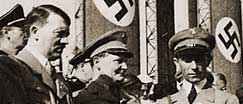
Albert Speer writes a final letter to his friend, Karl Hanke: (Note: Speer will later turn on him in Inside the Third Reich, blaming him for the destruction of Breslau):
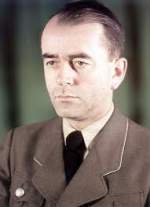
Dear Hanke, You have given me a great deal in my life (and) I admire your character, and your loyalty and steadfastness as much today as I did when we first met. You have already done a lot for Germany by your exemplary defense of Breslau. One day your achievements will receive the recognition reserved to only very few real heroes in Germany's history. At this time, when a whole leadership has failed the people, you stand as a shining example and by your conduct bear witness, loud and clear, against these others. Germany will not perish! Though desperately struck by fate, it will survive and one day regain its honor. The people were uniquely brave and loyal; it is not the people who failed. And all those who have betrayed this Volk will one day suffer the consequences. May God protect Germany. I, dear Hanke, thank you once more with all my heart for all you have done for me. It was to you I owed my first decisive successes and owe equal gratitude now for standing by me later, as my faithful friend. But I will not pity you: you are going toward a fine and worthy end of your life. Most affectionate greetings, from your friend, Albert Speer. (Sereny)
Croatia: Osijek, one of the largest cities, is liberated from fascist control.
Franz Von Papen is arrested by an American platoon in a rustic lodge in the forests of Westphalia. Papen has been constantly on the run (first from the Gestapo, then from the Allies) since returning to Germany from his diplomatic post in Turkey. The Americans wait patiently as he packs a small rucksack. Note: Papen will be acquitted at the first Nuremberg Trial.
[See: Was Franz von Papen Really Innocent?] (Tusa)
Papen's arrest caused consternation at the (British) Foreign Office. It raised in far more acute form than Ribbentrop's the danger of Soviet misinterpretation of his presence behind Western lines. 'I cannot imagine a more unwelcome prisoner,' wrote a Foreign Office official. 'More peace feelers have been associated with his name than almost any other prominent German.' The Foreign Office moved fast to head off any possible Allied misunderstandings. Within six days of his detention, Papen found himself at Eisenhower's headquarters facing the senior British and American military intelligence chiefs in Europe—and two Soviet generals. He told them little of any military or political significance, but demonstrated an amazing self-confidence. 'He was extremely well-dressed, beautiful silk suit, etc., and it was clear that he had intended to fall into the hands of the Americans and had dressed up for the occasion,' said the Foreign Office report on the meeting. He indicated his belief that he still had a role to play in liaising between the Germans and the Allies. When Major General Strong, the British head of Military Intelligence at SHAEF, asked the Foreign Office if he should seek a further, private interview with Papen, he was put sharply in his place: 'Such an interview must under no circumstances take place—Papen is as dangerous as a hamadryad snake—he could do us no good.


Funeral services are held for Franklin Delano Roosevelt: Churchill does not attend, telling the King that 'so many of Your Majesty's Ministers are out of the country, and the Foreign Secretary had arranged to go anyhow, and I felt the business next week in Parliament and also the ceremonies [in London] connected with the death of Mr. Roosevelt are so important that I should be failing in my duties if I left the House of Commons without my close personal attention.'
1946 Nuremberg Tribunal: From the letters of Thomas Dodd:
Friday [April 12, 1946], Kaltenbrunner was on direct exam in the morning and on cross in the afternoon. Amen did a miserable job—but the attitude of Kaltenbrunner made him look better than he was.
1953 Spandau Prison: Albert Speer writes to his friend and archivist, Rudolf Wolters:
Yesterday he [Doenitz] got at me all day. "If it was up to the Americans," he said, "you'd get out ahead of me. The American Jews would make sure of it. But now it's German public opinion that counts." What gets me . . . is that he makes me out a sycophant. Yes, it's true, I'm civil to Jew who are civil to me—I always have been and always will be. I would say that after what has happened, they have more reason to think ill of me than I of them. Hess, with whom I discuss it all, is as cross with himself as I am with myself. "I don't understand it either," he said. "When Raeder has a go at me, I simply can't think of anything to say. In the evening in my cell, I am furious for not having given as good as I got. Is it the same for you?"
I can tell you that I'm often at the end of my tether. The smallest things become absolutely enormous. The other day—my wife was to come the next afternoon—I decided to sew on some missing buttons. After finally having managed to thread the needle, it disappeared. I couldn't find it. I first looked all over the bed, including, ridiculously enough, under the pillow, then took the whole bed apart, took off my jacket and then my trousers thinking it might have got stuck in them and, still not finding it, found myself bathed in nervous sweat.
When finally, exhausted, I collapsed on the bed, I saw needle and thread, clear as day, lying on the floor at my feet. You won't believe it, but my heart beat so hard, I had trouble breathing. And then the next day, my wife's visit: always the saddest half-hour one can imagine, for her, I fear, quite as much as for me. Sometimes I feel I should spare us both these visits, and yet . . . and yet . . .
I try—I really try—never to show my occasional despair. What is most difficult for me is not having anybody to talk to here. I fear I am rather more sensitive than the others. Well, I suppose I can't very well ask for a second architect to be locked up here for my sake, can I? . . . . It is a relief to be able to tell you what troubles me. Nonetheless don't worry, I'll stick it out. (Sereny)
1950 Cold War: President Truman receives NSC-68: President Harry S. Truman receives National Security Council Paper Number 68 (NSC-68). The report was a group effort, created with input from the Defense Department, the State Department, the CIA, and other interested agencies; NSC-68 formed the basis for America's Cold War policy for the next two decades. [For further details, Click here.]

1959 Wunderwaffen: Hollywood movie producer Charles M. Schner presents a first draft of a screenplay—I Aim at the Stars—for a proposed film of von Braun's life, to Gordon L. Harris, Huntsville's Public Information Officer. The movie project is eventually approved, but the movie will have problems from the beginning. Its eventual director, J. Lee Thompson will later comment:
Von Braun and I disliked each other on sight. After a time I grew almost to like him: almost, but not quite. (Piszkiewicz)
1962 Speer's daughter, Margret, weds archeologist Hans Nissen. As a photographer of architecture she has worked at the Berlin exhibition Topographie des Terrors.
1988 Soviets to withdraw from Afghanistan:
Representatives of the USSR, Afghanistan, the United States, and Pakistan sign an agreement calling for the withdrawal of Soviet forces from Afghanistan. In exchange for an end to the disputed Soviet occupation, the United States agreed to end its arms support for the Afghan anti-Soviet factions, and Afghanistan and Pakistan agreed not to interfere in each other's affairs. [For further details, Click here.]
1997 Former Nazi SS captain Erich Priebke—accused in Italy's worst World War II atrocity—goes on trial for the second time in a year.
Edited by Levi Bookin (Copy editor) Click to join 3rdReichStudies
levi.bookin@gmail.com







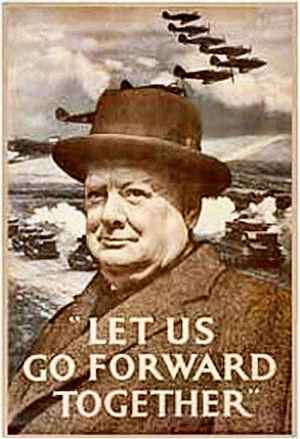
Please note that the list-owner and the moderator are not responsible for, and do not necessarily approve of, the random ads placed on our pages by our web server. They are the unfortunate price one pays for a 'free' website.
FAIR USE NOTICE: This site may contain copyrighted material the use of which has not always been specifically authorized by the copyright owner. We are making such material available in our efforts to advance understanding of historical, political, human rights, economic, democracy, scientific, environmental, and social justice issues, etc. We believe this constitutes a 'fair use' of any such copyrighted material as provided for in section 107 of the US Copyright Law. In accordance with Title 17 U.S.C. Section 107, the material on this site is distributed without profit to those who have expressed a prior interest in receiving the included information for research and educational purposes. If you wish to use copyrighted material from this site for purposes of your own that go beyond 'fair use', you must obtain permission from the copyright owner.